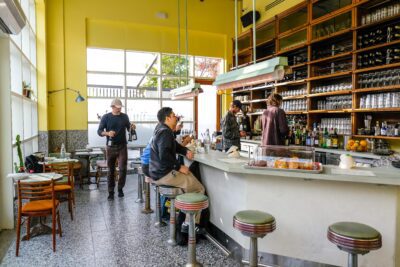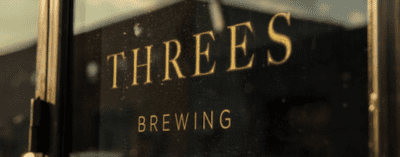Courtesy of Zabar's
Saul Zabar, NYC’s Sultan of Smoked Fish, Dead at 97
Taking over the business from his parents, the Brooklyn-born lox lover transformed Zabar's into an Upper West Side institution
Scoop out some schmear for Saul Zabar, the owner and smoked fish sommelier of the Upper West Side’s iconic Zabar’s specialty store. According to his daughter, Zabar died on Tuesday, October 7, after being admitted to a hospital for a brain bleed.
He was 97 years old, and for the last 75 of them, the Brooklyn-born afish-ionado (I am so sorry) has managed and maintained a small but mighty empire with some of the best lox, sturgeon, whitefish, herring—chopped or pickled, in cream sauce or schmaltz (but always sourced and hand-picked by Zabar from the borough’s own Acme Smoked Fish)—in town.
Zabar’s began as a fish counter owned and run by his parents in a Daitch’s supermarket. When his father passed in 1950, Saul, the eldest of three brothers, took over the family business, and, as The New York Times noted in a 2008 profile, spent “a lifetime amid the lox and rugelach.”
“I really came into Zabar’s as a temporary assignment,” he told NYT back then, but he was fated to split duties as Zabar’s face, owner, and chief quality control officer, personally testing each of its products, from the coffee (which he cupped and tasted in his own office) to the infamous “lobster salad” he ceaselessly defended, which was discovered in 2011 to be mostly rockfish and mayonnaise. Saul ran the business with his brother Stanley and a marketing maestro named Murray Klein, who was initially hired as a clerk and sweeper in 1953, left the shop entirely after a few years, and then returned later only to become a part-owner, leading the consolidation of what was, at the time, a small chain of five stores into the flagship operation that’s sat at the corner of Broadway and 80th Street since the early 1960s. It was reportedly Klein who chose to expand the Zabar’s inventory with housewares, appliances, and specialty items beyond their famous cured meats and fish (Zabar’s now has hundreds of cheeses sourced from around the globe) to appeal to the neighborhood’s increasingly sophisticated palette. After a bit of litigation, Klein’s retirement in 1994 gave full control to the shop’s namesake brothers, who have run it with assistance from a few of their kids for the last 30 years.
It’s easy to dismiss this as another ancient New Yorker inevitably biting the dust, but what the Upper West Side—and, by extension, the whole city—lost in Zabar was one of the precious few food people left guided almost purely by their own taste, who used and trusted it enough to deftly transform a mom-and-pop stall into a sturdy, world-renowned local institution. And there’s probably a lesson in there somewhere for the rest of us.
You might also like 























